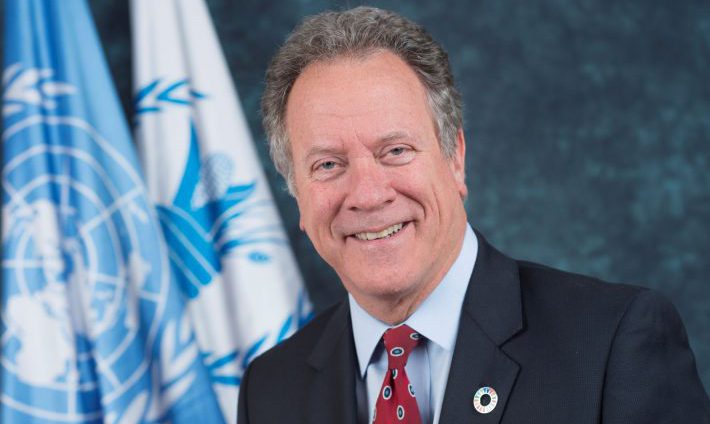Planned Gaza Humanitarian Foundation seeks to restore aid flow while ensuring terror groups are sidelined.
David Beasley, the former executive director of the World Food Programme and Nobel Peace Prize laureate, is in talks to lead the newly proposed Gaza Humanitarian Foundation (GHF), according to a report by Axios citing sources familiar with the matter. Beasley, a former governor of South Carolina who was appointed to the WFP post during the Trump administration, served until December 2023 and is widely respected in the humanitarian field.
The proposed GHF is a joint initiative involving the United States, Israel, and other international players, aimed at re-establishing humanitarian aid deliveries to Gaza. Beasley’s potential leadership is seen as a move that would lend significant credibility to the foundation and encourage cooperation from organizations currently hesitant to engage.
Axios reported that a source close to Beasley confirmed he is negotiating the terms of his involvement, which include the urgent reintroduction of aid to Gaza as a precondition for his leadership. The foundation, still in formation, is being framed as a civilian-led, independent entity designed to complement the efforts of the UN and traditional aid groups, rather than replace them.
Efforts are underway to secure broad support for the GHF. US envoy Steve Witkoff recently briefed UN Security Council members, while American diplomats also presented the plan to UN agencies in Geneva. However, the UN and several humanitarian organizations have voiced opposition to the initiative, stating that it could violate established humanitarian principles.
According to a report by I24NEWS, the reason for the organizations’ opposition to the new aid plan is Israel’s insistence on having the ability to choose who not to distribute aid to, to ensure it does not reach Hamas’s hands.
A source involved in the planning emphasized that a central challenge is ensuring that aid bypasses Hamas and reaches the civilian population directly. “We’re building a new model that is different by design,” the source told Axios. “That’s not a flaw; that’s the point. It requires collaboration across many stakeholders, all of whom recognize the urgency of the situation on the ground.”David Beasley, the former executive director of the World Food Programme and Nobel Peace Prize laureate, is in talks to lead the newly proposed Gaza Humanitarian Foundation (GHF), according to a report by Axios citing sources familiar with the matter. Beasley, a former governor of South Carolina who was appointed to the WFP post during the Trump administration, served until December 2023 and is widely respected in the humanitarian field.
The proposed GHF is a joint initiative involving the United States, Israel, and other international players, aimed at re-establishing humanitarian aid deliveries to Gaza. Beasley’s potential leadership is seen as a move that would lend significant credibility to the foundation and encourage cooperation from organizations currently hesitant to engage.
Axios reported that a source close to Beasley confirmed he is negotiating the terms of his involvement, which include the urgent reintroduction of aid to Gaza as a precondition for his leadership. The foundation, still in formation, is being framed as a civilian-led, independent entity designed to complement the efforts of the UN and traditional aid groups, rather than replace them.
Efforts are underway to secure broad support for the GHF. US envoy Steve Witkoff recently briefed UN Security Council members, while American diplomats also presented the plan to UN agencies in Geneva. However, the UN and several humanitarian organizations have voiced opposition to the initiative, stating that it could violate established humanitarian principles.
According to a report by I24NEWS, the reason for the organizations’ opposition to the new aid plan is Israel’s insistence on having the ability to choose who not to distribute aid to, to ensure it does not reach Hamas’s hands.
A source involved in the planning emphasized that a central challenge is ensuring that aid bypasses Hamas and reaches the civilian population directly. “We’re building a new model that is different by design,” the source told Axios. “That’s not a flaw; that’s the point. It requires collaboration across many stakeholders, all of whom recognize the urgency of the situation on the ground.”





